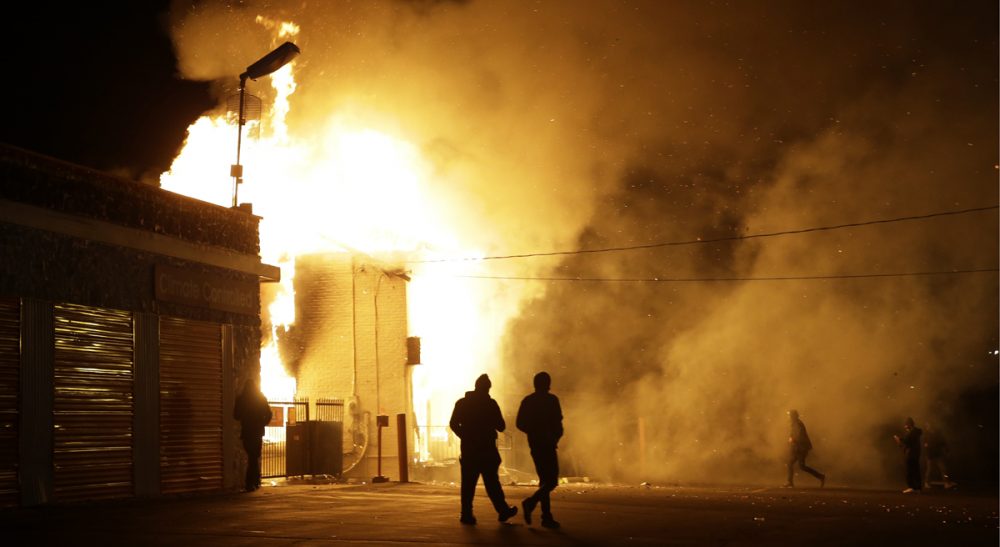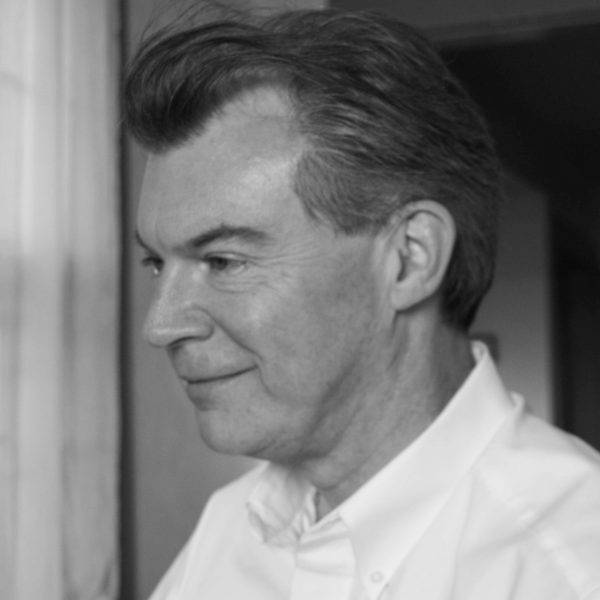Advertisement
2014: The Year Of Fear

It might seem a little far-fetched to look for a common thread weaving together the heaviest news stories of the year. The list would include a pretty broad range of subjects, after all: racial tension between communities and their police, the rise of a murderous insurgent regime in Iraq and Syria, the ugly truth about practices of torture in the name of American security, the growing gap between the richest and poorest households in our nation, the arguments over how to control the flows of immigrants coming to America.
But look just beneath the surface of these stories, and what you’ll find is a common denominator shaping both our discourse and our sense of the small possibilities in front of us to change these things for the better. That simple and very human link is the very real, and very limiting, power of fear.
If we still aspire to be a nation guided by principle ... how do we deal with the power that fear has exercised to divide us -- and make violence and brutality seem like sound thinking?
We’re told that Officer Darren Wilson acted as he did in Ferguson out of fear of Michael Brown. That may seem preposterous, given that the policeman was armed and the young man was not. But a more difficult question might be — in that critical split-second of decision, what was the source of Wilson’s fear? What sense can we make of it? How do we address it?
The Senate’s report on the treatment of detainees by the CIA tells pretty much the same story. Again and again the defenders of these practices have reminded us of the context of that behavior — the immediate aftermath of the attacks of September 11th, when we lived in great fear of another, catastrophic act of terrorism. But was that fear a good guide for our decisions?
Even in the seemingly arid world of finance and economics, the news that Citicorp was essentially authoring significant parts of the “cromnibus” bill — by itself a troubling concept — seems to reflect a grasping, defensive approach to addressing the growing inequalities tearing at the cohesion and sense of shared fortune within our society. More and more it appears that any such sense of our interdependence is perceived by the few benefiting from a rapacious financial system as a threat to be defended against — not as a symptom of a deeper ill. The prize for the most outrageous example of gated communities for the fearful rich had to go to a developer in Kansas re-purposing missile silos as underground, all-amenities condos.
If we still aspire to be a nation guided by principle, if we still hope to build communities that can meaningfully be described as a “common wealth,” how do we deal with the power that fear has exercised to divide us — and make violence and brutality seem like sound thinking?
Advertisement
Scientists can give us great insight into how fear shapes our decision-making. It makes us overestimate risks, and inclined to avoid them; it makes us pessimistic about the future; it makes us underestimate our power to make positive change. Fear makes us harden the boundaries of who is in, and who is outside, our group — whatever we understand that to mean. And when we see people in the outside group become angry, it tends to make us — you guessed it — even more fearful.
Fear is a human universal. We all experience it. It has tremendous power over us. Our political leaders appeal to it constantly to try to move us. And they often succeed. In fact the basic idea of a “fear appeal” has been studied by sociologists and psychologists for decades -- not just because it happens all the time, but because sometimes it’s an appropriate tool (think about an epidemic like Ebola), while sometimes its abused (when dictators whip up nationalist fury by creating fears of the “other”).
The problem is that we’re not all that great at discerning the difference between healthy and misleading fear. And the visceral emotion of fear generally leads us to terrible decisions — both in the heat of the moment and when we have time to deliberate.
We can’t fix this by devising better rules for when violence is appropriate. We have to address the problem where it starts — in our own perceptions of each other, whether other neighborhoods or other nations. Said differently, we have to work intentionally to make the boundaries that separate “us” from “them,” no matter how we draw them, have less, not more, importance.
This isn’t easy. Identity is important to us. We derive considerable meaning from it, and communities of people who have long been unfairly treated by structures of power often appeal to an articulation of the boundaries of identity — culture, race, language — as a means of preserving a sense of dignity and worth.
We are effectively disarmed in our search for common cause by the sense that the only rational thing to be is afraid.
And that is understandable. But in the midst of a descent into fear, it makes for a toxic outcome. We are effectively disarmed in our search for common cause by the sense that the only rational thing to be is afraid. It is as though all we have accomplished is to shed ourselves of the idea of any transcendent, universal human aspiration that could bind us together despite, or in opposition to, our fears. If that is true, the prospects before us are bleak indeed.
For some of us, the theme of the season is captured in a quirky old phrase: Fear not. They are words spoken to a frightened young girl; they are said again to poor farmers. Fear not. It does not come as suggestion; it’s not a Hallmark sentiment. It’s more like a command; it comes as a risky dare. It’s not offered to be comforting, but challenging: Stop acting out of fear. We have come as far as we will get with that basic emotion as our guide. To realize our higher hopes, we have to allow ourselves to be led by them.
